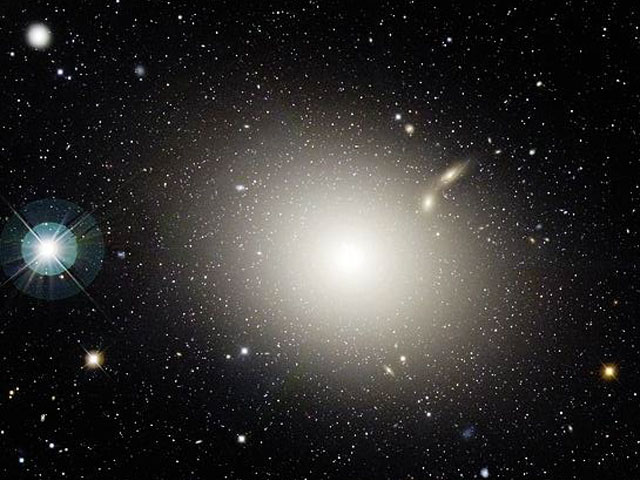There is a problem here, because the globular clusters of the Milky Way are most certainly parts of our universe, let alone parts of our own home galaxy.fastartcee wrote:
I've contemplated whether some kind of mega-nova could eventually produce a spherical cluster, but, as you've pointed out, unless the expanding debris of a nova 'bumps into' something (a molecular cloud, or another expanding debris field), star genesis will not occur. But what if the entire mass of a spherical cluster simply 'popped into' existence, just like the mass/matter/energy of the Big Bang popped into existence? (As Lawrence Krauss might say, "Something from nothing.") Could that eventually result in what we see as a spherical cluster? Has the math ever been done?
The way I understand it, physicists aren't too sure what the Big Bang really was. Was it an explosion? Maybe it was, but then again, maybe it wasn't.
In any case, the Big Bang gave rise to our entire universe. Nothing that exists in our universe was not caused by the Big Bang. And nothing that exists in our universe is also a part of another universe. That is the way I understand it, at least.
But now consider the possibility that globular clusters were formed by mini-mini bangs (Small Bangs?). Wouldn't even these Small Bangs cause incredible havoc if they suddenly intruded incredibly violently into our pre-existing universe? Shouldn't we see remnants of those unbelievable shocks of energy that suddenly burst into our universe? Shouldn't pre-existing galaxies, even proto-galaxies, be completely ripped apart by the titanic forces of the Small Bangs? And later, when the mass and energy reassembled itself into structures like galaxies, is it even conceivable that the disk and halo of the Milky Way would have been made of matter that originates from the original Big Bang, while the globular clusters would trace their origins back to matter cooked up by the Small Bangs?
That seems like a completely unrealistic scenario to me.
Ann
